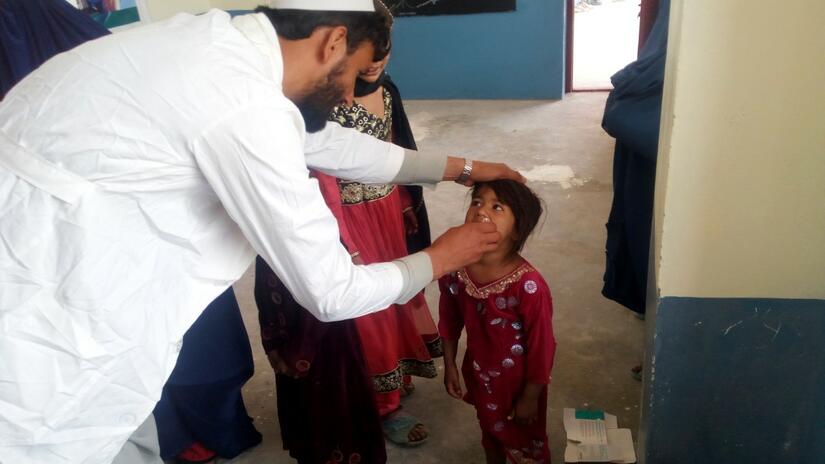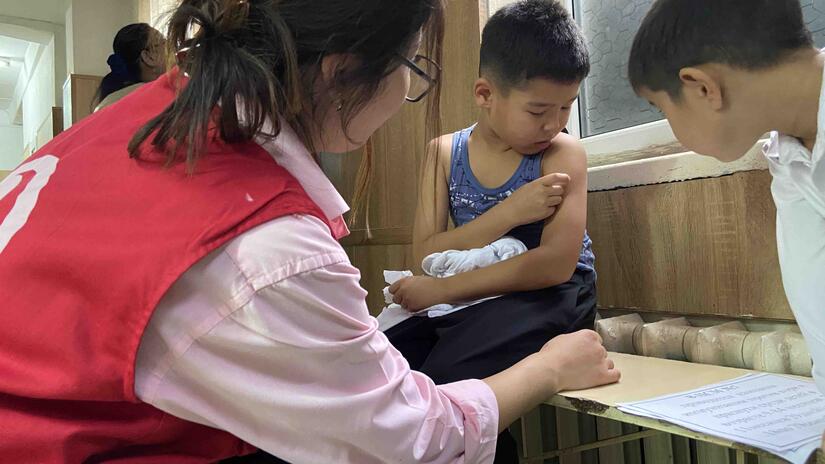World Immunization Week
Humanly Possible. This is theme of World Immunization Week 2024. Humanly Possible is a testament to what can be achieve when humanity works together for a better future. Since the latter half of the 20th Century, coordinated, global immunization campaigns have saved millions of lives. Humanly Possible also reflects our continued commitment to ensure that every community has access to the vaccines and information they need for a healthy future, free from unnecessary illnesses and deaths.
Preventing illness in communities around the world

An Afghan Red Crescent volunteer administers an oral polio vaccine to a young child as part of its immunization campaign.
Photo: Afghan Red Crescent
Working in some of the world’s most challenging environments, the IFRC supports our 191 National Societies to reach vulnerable and isolated communities with life-saving vaccines.
Immunization is the foundation of healthy communities. Our millions of volunteers go the last mile to ensure that all children, everywhere get the immunizations they need to live long and healthy lives.
Every year, an estimated 20 million children do not receive routine infant immunizations. Most of these children live in fragile, conflict-affected and vulnerable communities where vaccination services are limited.
Even in areas that do have access to vaccines, a global rise in vaccine misinformation and mistrust is stopping many people from immunizing their children. Tragically, this has led to an increase in preventable diseases and deaths.
Volunteers saving lives at the local level

A Kyrgyzstan Red Crescent volunteer administers a measles vaccine to a young boy.
Photo: Red Crescent Society of Kyrgyzstan
Red Cross and Red Crescent Societies deliver immunization activities at the local level. Because our trained volunteers are members of the very communities they serve, they are trusted even by remote and marginalized populations.
We tailor our activities to different needs and contexts. In some countries, we provide direct vaccination service delivery or offer vaccination as part of a package of primary health care services. In others, we focus on creating demand for vaccines among communities or on strengthening local health systems.
In complex situations such as humanitarian settings and during conflicts, National Societies' auxiliary role and local presence means they can bridge the gap between communities and formal health services.
